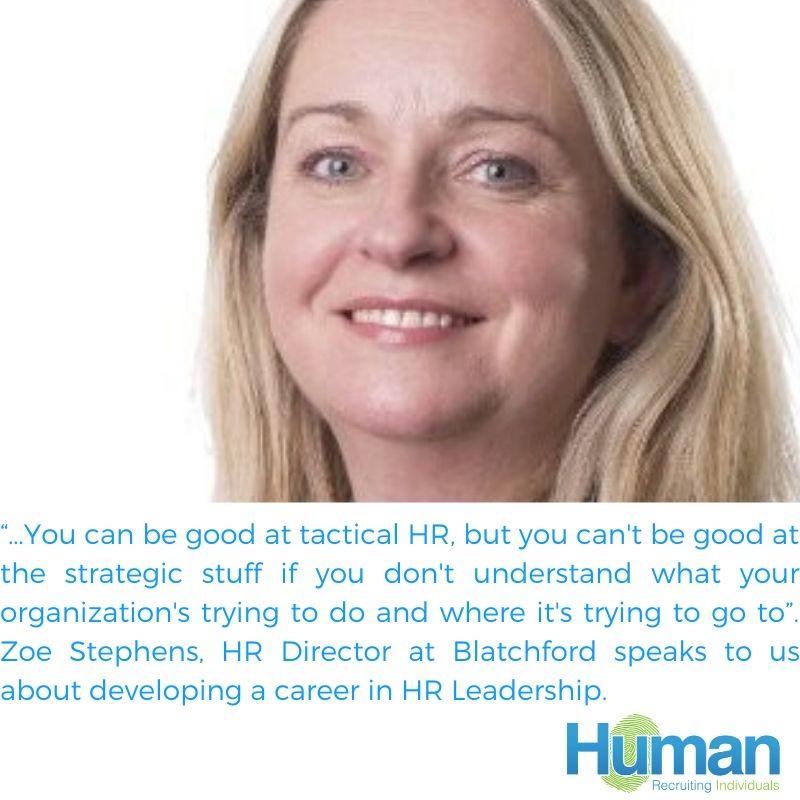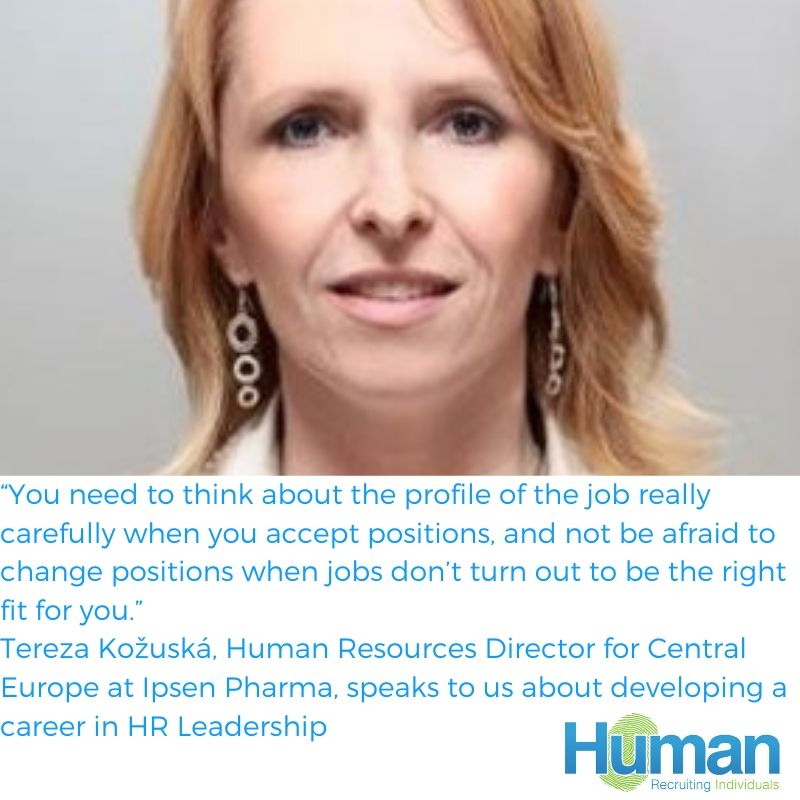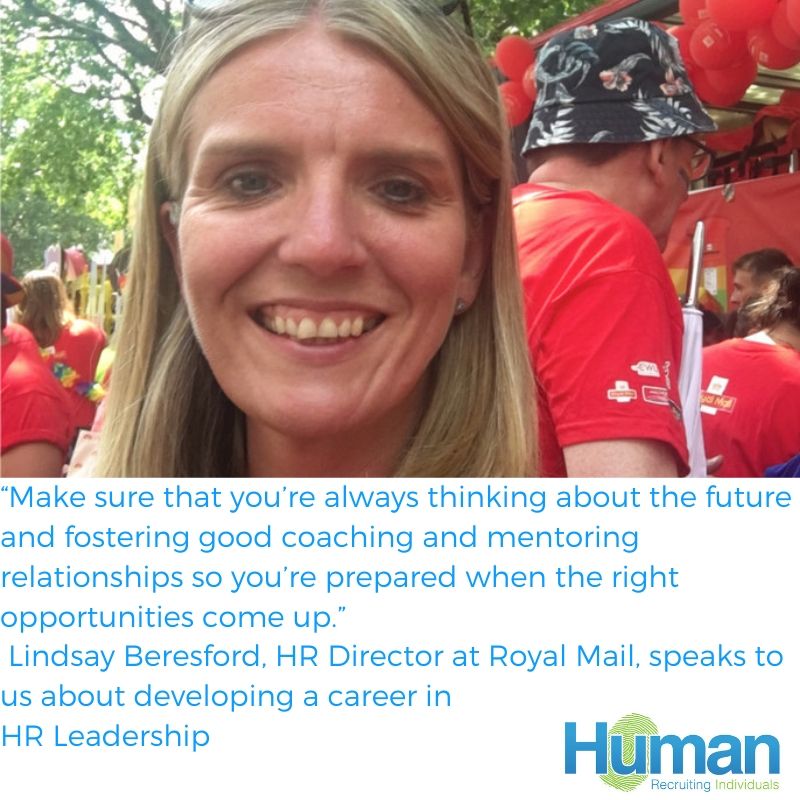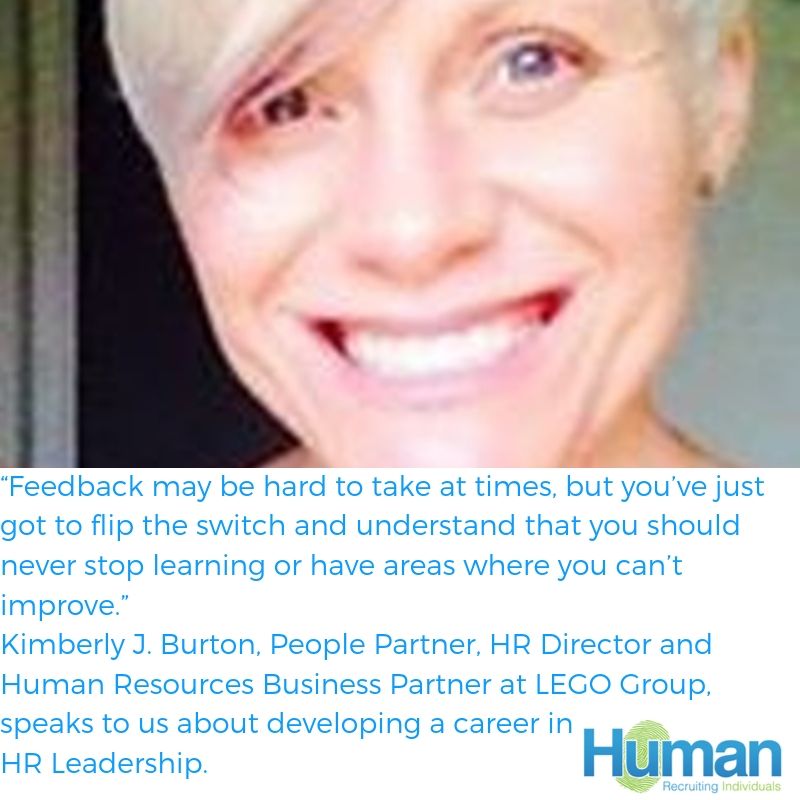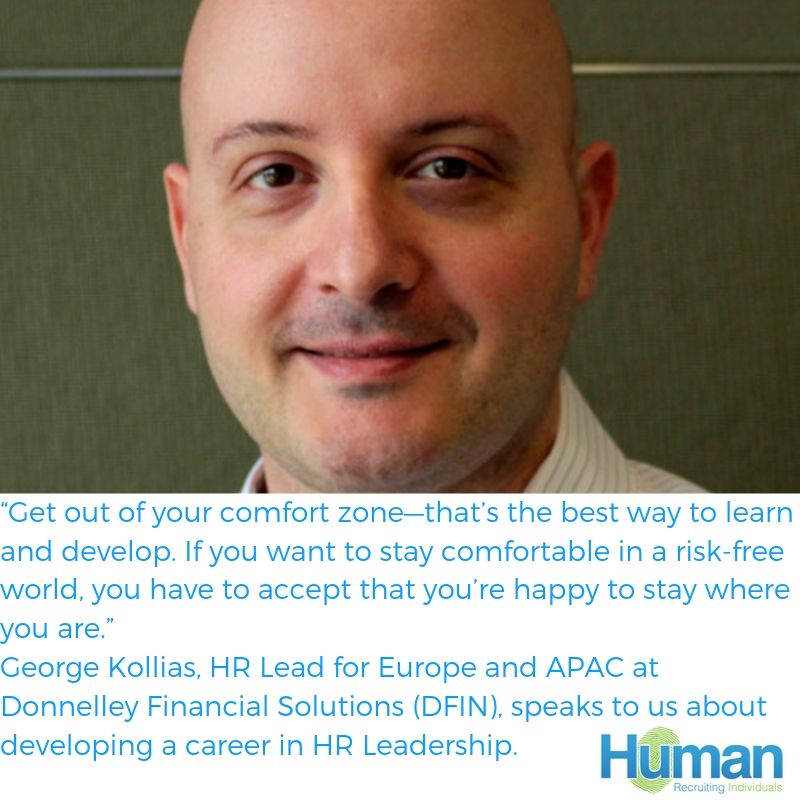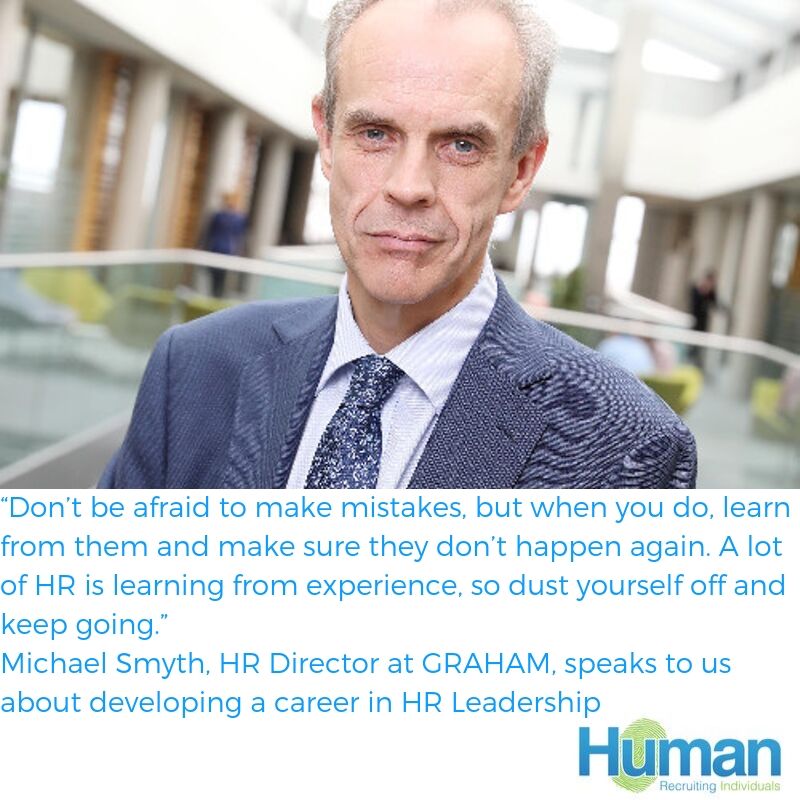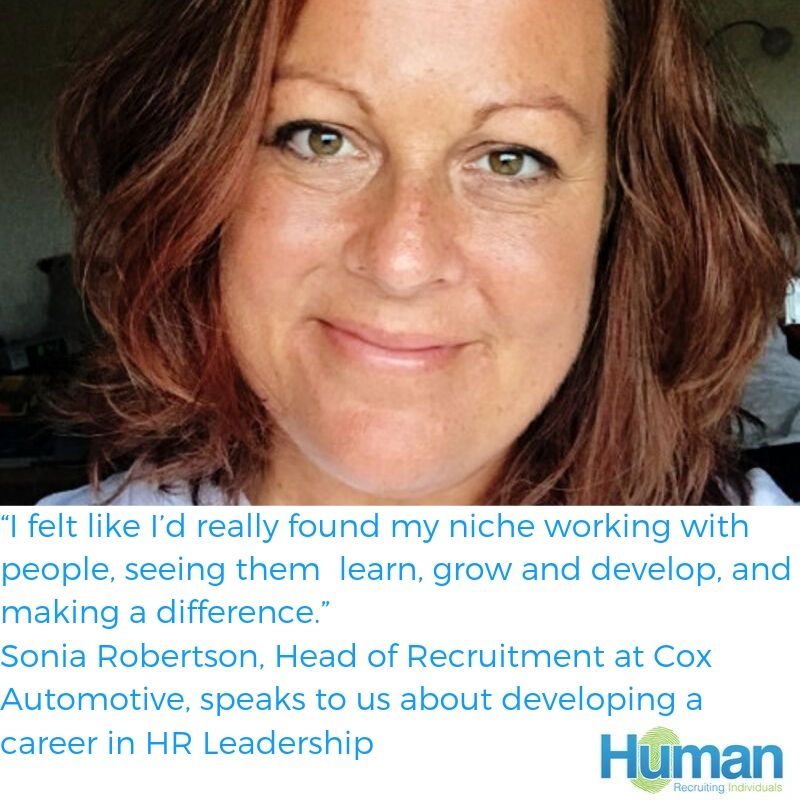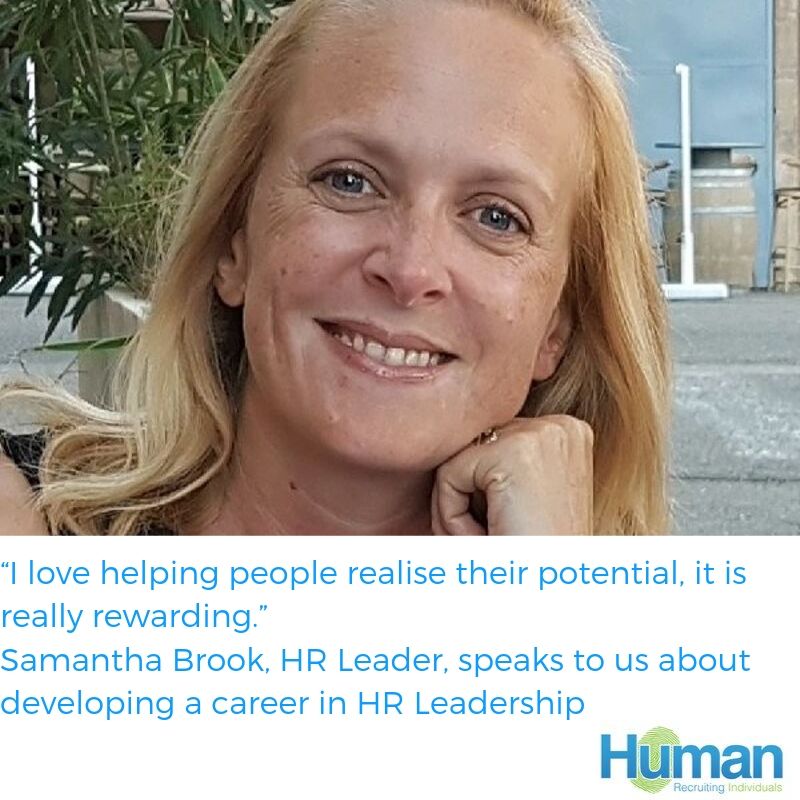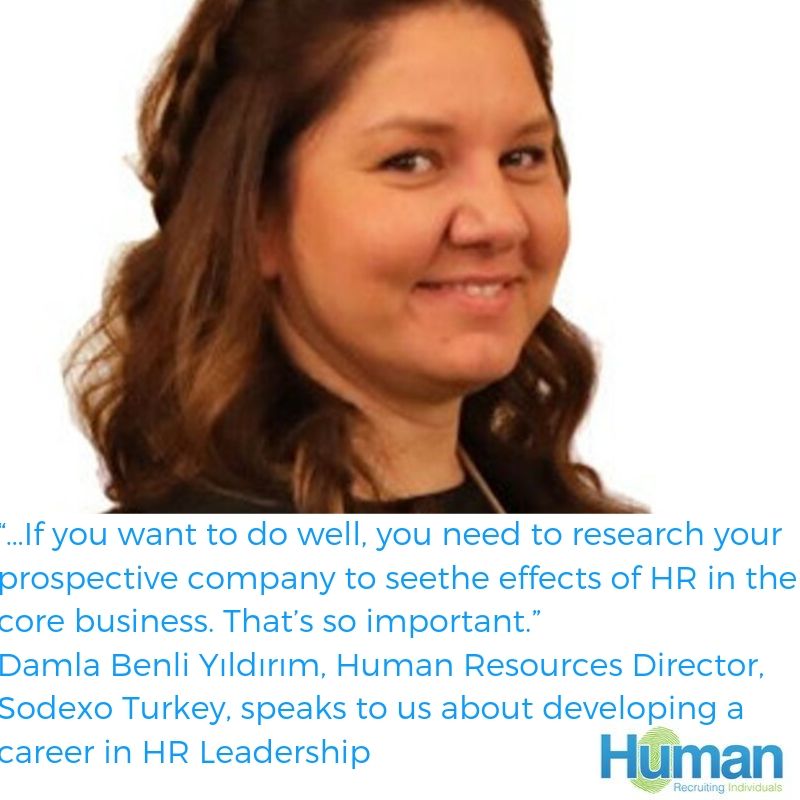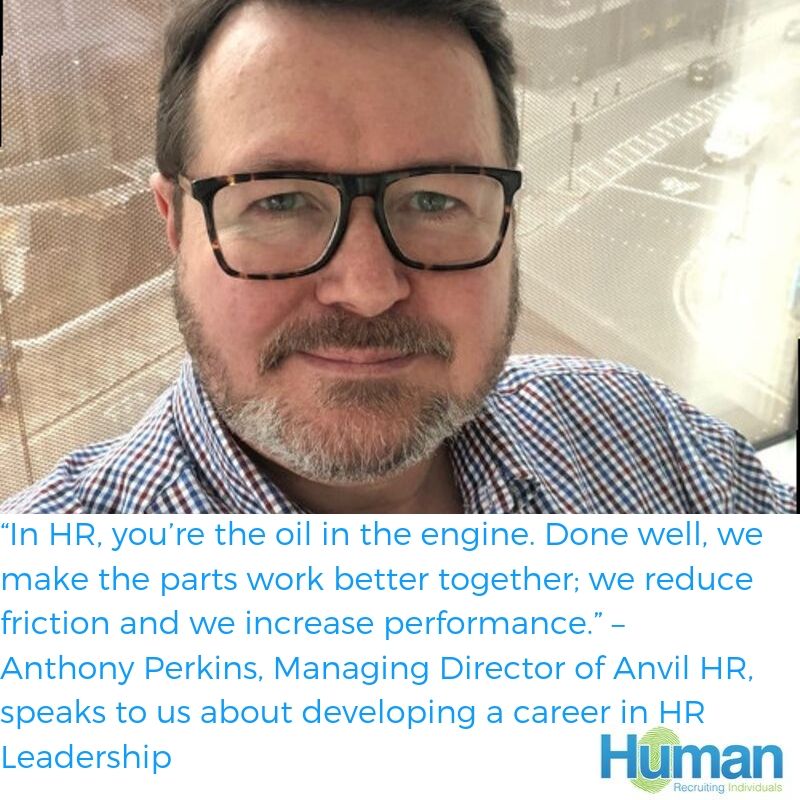Developing a Career in HR Leadership: Interview With Zoe Stephens, HR Director at Blatchford
“…You can be good at tactical HR, but you can’t be good at the strategic stuff if you don’t understand what your organization’s trying to do and where it’s trying to go to.” – Zoe Stephens, HR Director at Blatchford speaks to us about developing a career in HR Leadership. As part of our commitment to supporting candidates to develop fulfilling careers, we’ve invited some HR Leaders to share the secrets of their success. This week, we had a great conversation with Zoe Stephens HR Director at Blatchford who began her journey in the hospitality sector before moving into a career in HR. Can you tell us a bit about how you started your career in HR Leadership and why? I trained as a chef and started working in restaurants then I very quickly realized that I preferred being out front instead of in the kitchen. I moved into restaurant management quite quickly after that I spent a period running several restaurants in central London. I look back on it now and it was the best job when you’re new out of university and you can party and enjoy yourself and still go to work the next day. Whilst working for a chain of restaurants and I was put on their high potential program, for restaurant management. As part of the high potential program, they asked me to look at getting the investors and people accreditation for the chain. I knew nothing about managing people, or using resources in a way that drives business success. I quickly started to understand what the emphasis on people and standards could do for a business and it sparked an interest in me. Back then it was a desktop exercise. You literally just had to create a performance review form and put it in a folder, and you didn’t have to demonstrate any evidence that you were using it on the go. But it was enough to make me think, I find this fascinating. At that point the company that I worked for wouldn’t sponsor me through what was the IPD then now the CIPD and I moved to The Body Shop and sponsored myself through the CIPD. Can you tell me about key themes or challenges you’re seeing across the HR sector? I think the first one is the way people have begun recognising value of HR and the impact it can have on a business. In my role, I’m really in the centre of helping with business achievements. Whereas when I started my career, HR’s role was to keep the business safe, “let’s not get into trouble and also avoid high staff turnover”. It was much more geared towards employee relations. But now, I would say it’s about demonstrating how you add value. We’re solution finders now. So, tell me the problem that you’re trying to fix, and let me see if I can find a way using people and all the resources, we’ve got to fix your problem. And that might be through recruiting the right person who’s bringing in new skills, it might be through development and training interventions, that might be through reorganizing the business for them or giving them suggestions as to how they can move the skill sets around for business to be better focused on the objective. It might about looking at the rewards and recognitions agenda. Thinking, ‘Are we missing a trick, are we staying ahead of the curve?’. And in terms of employee engagement, how do you really harness all that discretionary effort? It’s about understanding your employee base, knowing one size does not fit all. What career advice would you offer to someone either working towards a career like yours, or someone just getting started in their HR career? I’d offer them the basics initially, which means understanding what the business is trying to achieve and understand your employee base and how do you leverage them to be able to help achieve the objectives of the business and the individuals. I’d also advise them to be the eyes and ears of the organization. Keep close to the temperature of the organization, because often managers don’t. So, you can be good at tactical HR, but you can’t be good at the strategic stuff if you don’t understand what your organization’s trying to do and where it’s trying to go to. I would also say be super curious about the business and every role you’ll be in, ask questions. Why do we do that? What’s the outcome? What’s the impact if we don’t do it? Just try and be inquisitive, frequently HR people don’t naturally come with that as a behaviour trait. So, pure curiosity enables you to challenge the norms of the business in a very constructive way. And I think the other thing is that you must take risks, calculated risks. Zoe is the HR Director for Blatchford and has over 22 years of experience in the HR industry. If you are interested in having a confidential conversation about your career or would like support growing your team, please get in touch today.

